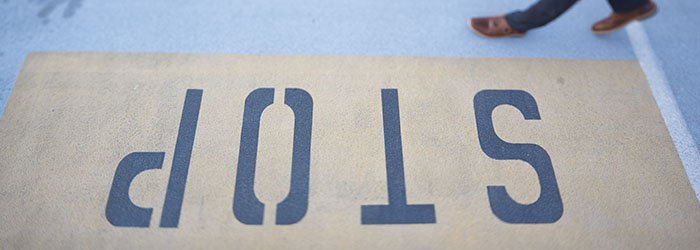Society Must Stop Fearing Fat
A picture is worth a thousand words, but what about the words themselves? For people who have struggled with an eating disorder, words can play a huge role in whether or not they engage in ED behaviors. Words and language are such critical elements of our relationships and interactions, and it sucks when they continually chip away at our psyches.
Many words come to mind when I think of body image and eating disorders: BMI, fear, numbers, ugly, pretty, gross, perfect, failure, success, happy, worthless, skinny and, of course, FAT. That three-letter word holds so much power when someone is struggling with ED. In fact, it seems as though just about everyone has developed a negative association with “fat.” Just look at how society is using that word. Supermarket shelves are full of “fat-free” items.
Advertisements on television and the radio and in magazines are filled with products that will eliminate fat from our bodies. Even as the modeling industry welcomes more diverse models, we still can’t use the word “fat” (curvy and full-figured are preferred). “Fat” is a bad word.
When did it become the worst thing in the world to be fat? I’m not sure; I can only speak from my personal experience. As someone in recovery from anorexia, my biggest fear was becoming fat. That would mean that I was lazy, unattractive, and unhealthy. Being skinny meant that I worked hard, I was pretty, and I was a success. The less space I took up, the better that made me. Even eating foods that contained fat was a failure.
But how did that happen? How did I see the word “fat” as such a burden? I think if we take a step back and analyze our surroundings, we’ll find some answers. The “fat-blasting workouts,” “low-fat menu options,” and fat-shaming that I hear and see in our society is a major source of unhappiness and low self-esteem. While seeking to completely recover from ED, I knew I had to educate myself about fat. So I did research, I read and I learned.
Here’s what I discovered:
● Fat is a macronutrient, meaning it is one of the most important nutrients your body needs. Yes, your body needs fat.
● Eating fat doesn’t make you fat. That was a huge one for me to accept.
● Having body fat is normal and necessary. The amount of body fat that an individual needs varies depending on so many factors, so comparison is fruitless.
Next I had to drop the negative associations I had with the word “fat.” I think we all need to. If the worst thing that we can become is fat, then we seriously need to rethink our values. FAT IS NOT AN IDENTITY, just like skinny is not an identity. And being an anorexic (even a recovered one) is not my identity. Whether someone is fat or not (and society’s definitions of that are so blurred) does not mean that they are “x,” “y,” or “z.” Being skinny doesn’t make someone a snob and being fat doesn’t make someone a slob.
When society realizes that and spreads the message, then we will be on the right track. For the time being, I’m greatly distressed and concerned. I do believe that we are moving away from the skinny ideal, and that’s great. At the same time, we shouldn’t skinny-shame people who are naturally thin. We need to focus on what we can’t see—things like personal qualities, values and beliefs, passions and talents. I long for the day when we can meet someone for the first time and remember them based on their wit, gentleness or charm, not on their weight or appearance.
Thanks to resources like Proud2Bme, we are moving towards that day. It’s an extremely long road ahead, and I want to help us get there, but I can’t be the only one. We need readers to call out this “fat” talk and redirect mindsets. Take the power back, because “fat” is merely a word. And my friends, we are much more than words.
Kaitlin Irwin is in recovery from anorexia. She spent her college years struggling to hide her illness. With lots of support, patience and an Intensive Outpatient Program, she embraced herself, flaws and all.




